Dear neon demons,
In July 2018, some 10 months before premiering his Amazon Prime Video series Too Old to Die Young at Cannes, Nicolas Winding Refn wrote an op-ed in the Guardian with the headline, “our times need sex, horror and melodrama”. His straightforward and, we think, perfectly admirable argument can be boiled down to the following:
We need to be pushed out of our comfort zones – of complacency, and, for most of us in the west, an easeful life. I’m not advocating physical pain, but I do believe mental pain can be a way to stimulate and reset the brain.
What’s needed is art: good, challenging art, not good-taste art, which is the chief enemy of creativity. Problem is, most of our culture comes to us via a small number of conglomerates whose sole purpose is the bottom line.
Refn wrote this piece as promotion for his independent and esoteric streaming service, byNWR, and—significantly—while in America shooting his own debut streaming production for Amazon, then ranked by Forbes as the world’s second most valuable company. The column has its broad socio-cultural-political angle, of course; a wider application for the “use”, if you will, of art—at any point in time, in any place on the globe. But one may also take it specifically as a guidebook for Too Old to Die Young itself.
Too Old to Die Young was written by Refn in collaboration with the veteran comics writer Ed Brubaker, whose own work represents a fascinating and consistent ongoing project that tinkers around with crime genre conventions. For the series’ latter portion, which evolves to focus more clearly on the female leads, the men were joined by Brubaker’s one-time Westworld colleague Halley Gross, a TV and videogame writer whose expertise lies in sci-fi and dystopian narratives. Refn shoots largely in chronological order, cultivating a loose and fluid approach to the story as it goes along (Brubaker has described the director’s approach as involving “a zillion daily rewrites”) which renders it difficult to judge the specific contributions of his co-writers. But the broad generic elements that interest this trio are all brought to bear on a visionary series that is, perversely, just as muddled as it is coherent.
Much of our podcast episode on this series-cum-long film focuses on its contradictions and complications, so we’ll focus in this short companion essay on its successes as a stylistic exercise. Many of the work’s key dynamics and ideas rely on duality, contradiction and hypocrisy—so it’s probably appropriate that any serious criticism of it should proceed from a point of schizophrenia.
Refn’s Guardian column specifically highlights the role of Donald Trump—then, of course, President of the USA—in engendering an “apocalyptic” sensation across the country and the world. It is to this condition that the director chooses to respond in Too Old to Die Young. But of course, the show itself never names the President, or any of his cohorts, or America’s Republican party, or political conservatism, or the far right. It instead—rather more smartly—chooses to broadly evoke… well, not so much America as it exists but a poetic idea of America, “Late” America, as the bloated corpus of contemporary screen media presents it. The Los Angeles, Las Vegas and Mexico of Too Old to Die Young bear only the most bizarro relations to the real deals; by comparison, the LA of Refn’s Drive (2011) is a model of careful realism.
In turning away from direct, 1:1 political commentary and instead throwing a mélange of abrasive social ideas, nightmare motifs and weird jokes into this Boschian melting-pot, Refn does find something genuinely compelling: a deadpan parody of America, or perhaps the myriad, prismatic cultural images that make America up. His Guardian column may be framed, like so many late-2010s liberal acts of cultural criticism and marketing—the two sometimes indistinguishable—in the over-familiar terms of “the show/film/song/book/Twitter account/standup act we need now”, but the series itself refuses to quite bear this out. It is, despite its glacial pacing, an hysterical scream.
To an extent, the 2017-20 Trump presidential term will be forever associated with two peculiar new conditions of consumption: social media, of course, on the one hand; but also the so-called Peak TV moment, a coincidental development no doubt but one that has a broad epiphenomenal relevance. As alluded to above, many of the television and streaming series vying for views during a moment of, well, peak worldwide attention engaged in a kind of displaced cultural battleground—nothing new to that—but come the late 2010s surely exacerbated by a concurrent proliferation of both “official” critical sites and blogs and “unofficial” social-media commentators all of which could, would and continue to hold any creator’s feet to the fire in terms of social or political outlook, even demanding and often enjoying “course correction” for future editions of a given work. Hopefully it’s obvious, given what we do here, that this is no screed against the concept of criticism, or indeed against using art for tacit, obvious or direct political comment. But the particular, outsized relationship between the cultural economy of Trumpism and both the cultural and literal economy of Peak TV “content” making and its exegesis is itself something that needs interrogating. We’ll settle here for merely flagging it, and moving on…
The point is, Too Old to Die Young occupies a fascinating and, perhaps, truly subversive place in its landscape not by being discomfiting or extreme in its content, as Refn’s words on the matter imply, but by turning, in its very approach, so puckishly away from its Peak TV peers. It is deeply, obviously political—and about its very specific moment in time, no less—yet refuses to commit to much beyond ambient notes of commentary. When it does go on-the-nose, whether in dialogue or image, it is extravagant and cartoonish, as if to mock the very idea of making a concrete political statement in something as startling and fluvial as the Trump era. But forget the politics: at a “content” making level this is, fundamentally, not something that the vast majority of viewers could possibly bother with past the first half-an-episode. It is far slower, surely, than any other Peak TV series (even Twin Peaks: the Return, to which it owes a lot), and operates through a digressive dream logic that often leads to contradiction and, intriguingly, a kind of self-aware self-problematising—an unwillingness to definitely say the right thing. This style is designed not to allow for the clarity and catharsis of serious statement; it’s also designed to be almost provocatively boring. Refn wanted to push his Amazon Prime audience out of their comfort zones; it’s safe to say he ticked all the boxes. And, goshdarnit, that’s why Too Old to Die Young somehow, remarkably, works.
And when Refn complains, “most of our culture comes to us via a small number of conglomerates whose sole purpose is the bottom line,” then takes a stash of money from a company that exerts an absolutely dreadful overall pull on culture, society, economics and the overall global psyche, in order to create a pseudo-commercial, totally abstruse and anticommercial product that’ll make back precisely zilch in terms of whatever number-fudging counts as “revenue” in this context—that’s punk, baby, and it’s also cynical to the point of nihilism. In other words, stop looking for meaning in Refn’s images and Brubaker and Gross’s words; the medium, in this case, is the message. What could more aptly convey the apocalyptic, terminal-capitalist, postposteverything cultural abyss presented by Too Old to Die Young than the very existence of Too Old to Die Young?
As ever, thanks for listening—please share us around, recommend us, rate/review the pod on your podcasting app of choice, etc. etc. etc.
Finally, Calum briefly refers on-mic to an Atlantic article about Better Call Saul and its “slow” approach to television. Here’s yer link.
—Calum & Eddie

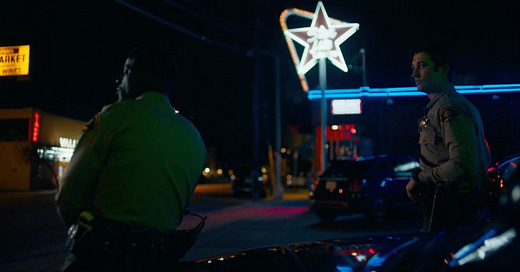




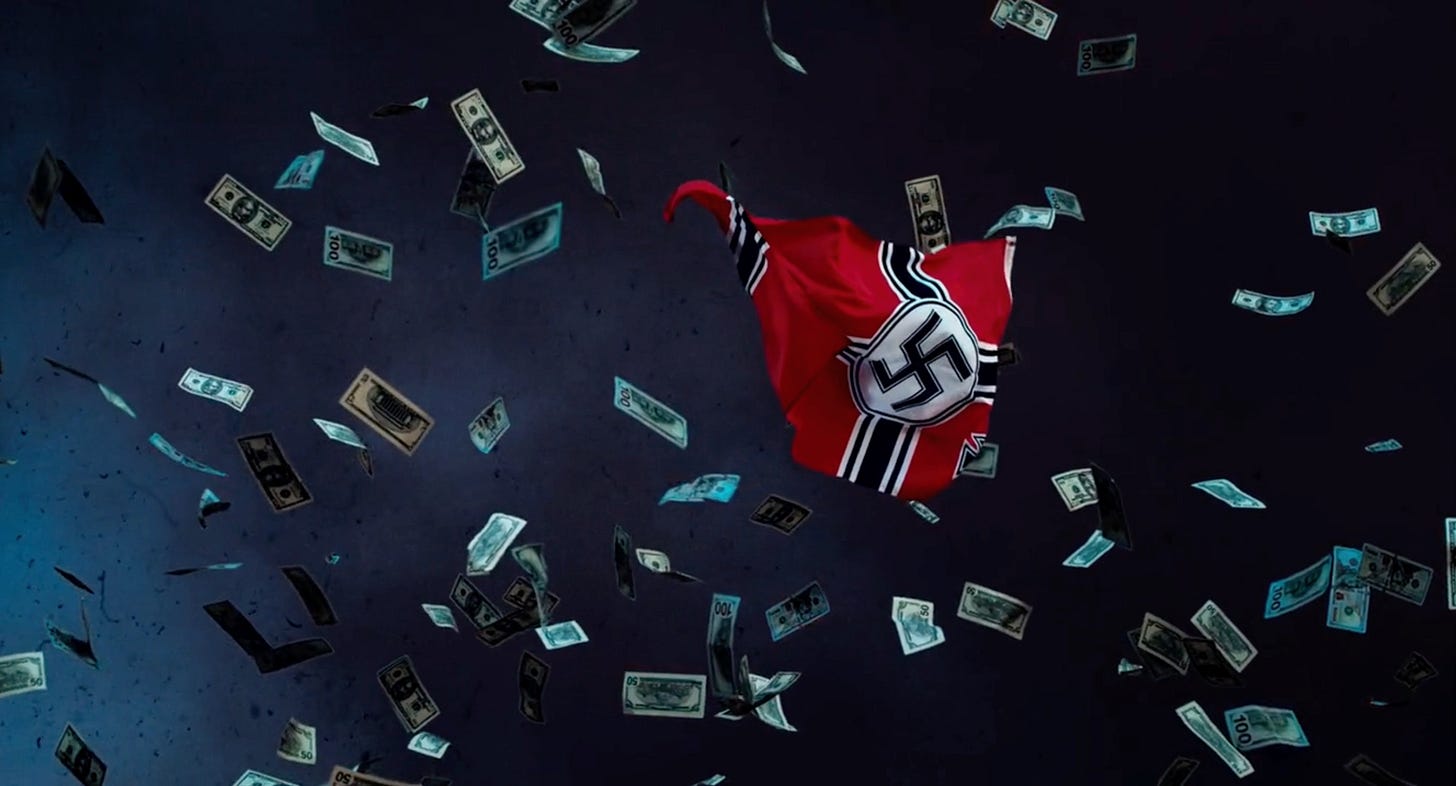
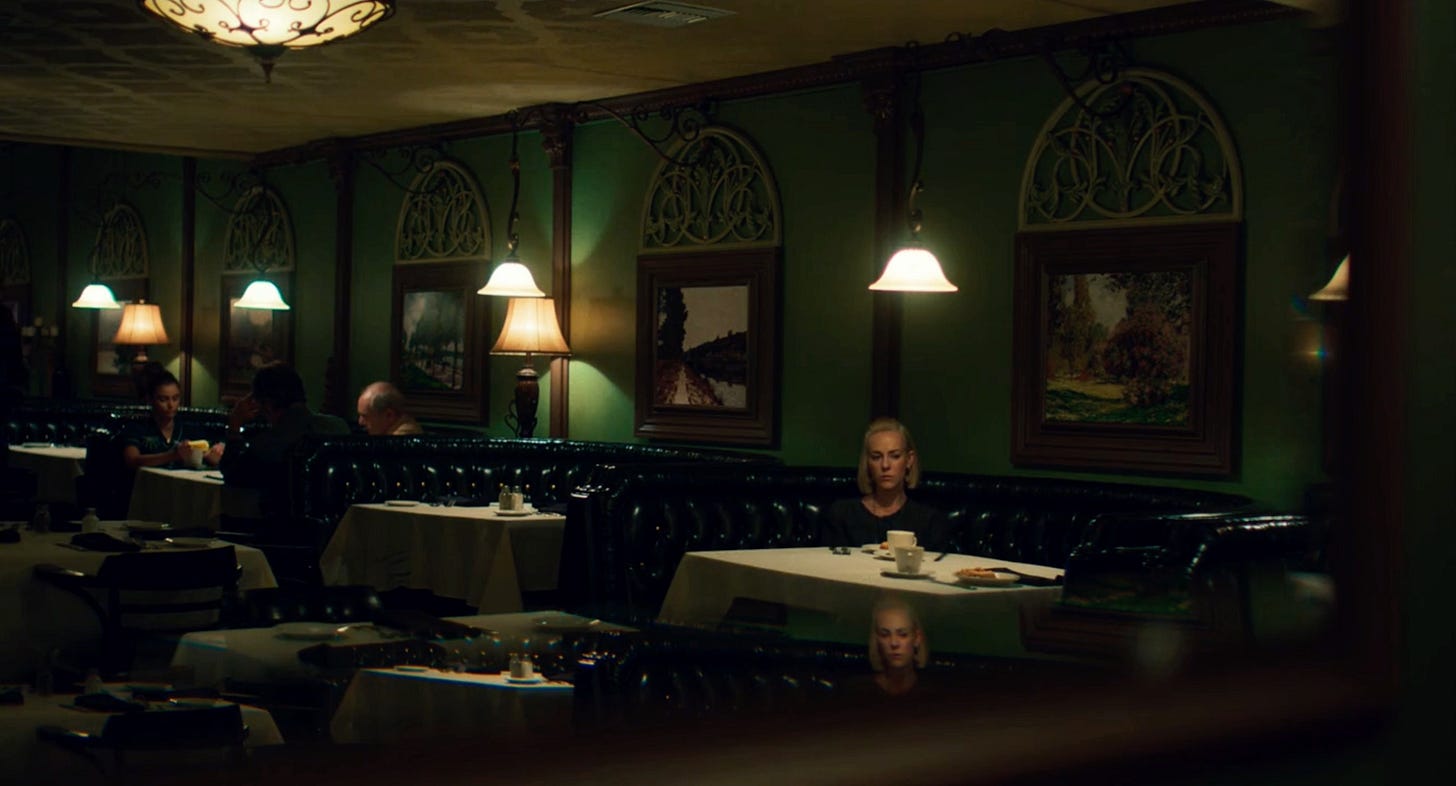
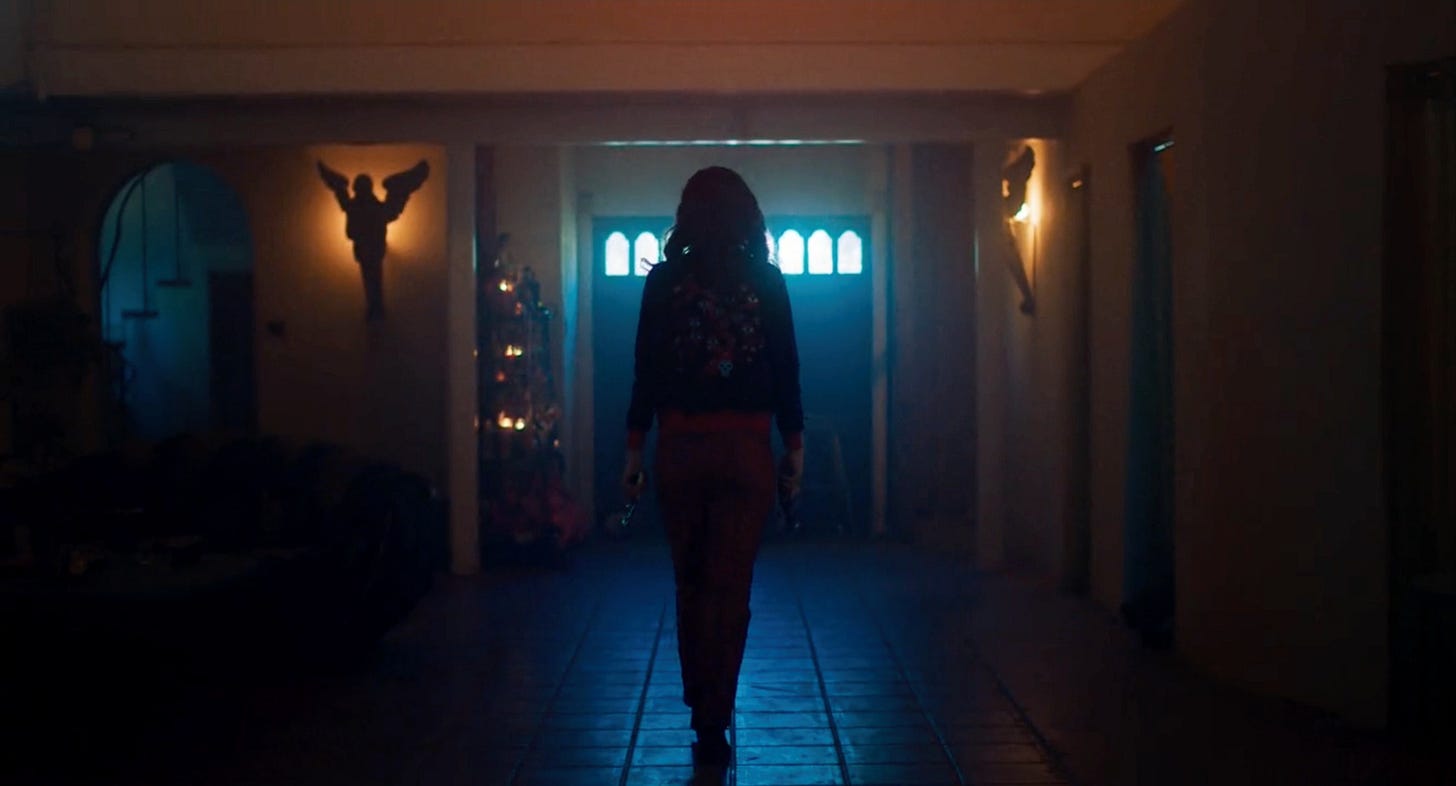


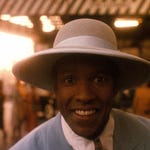





Share this post